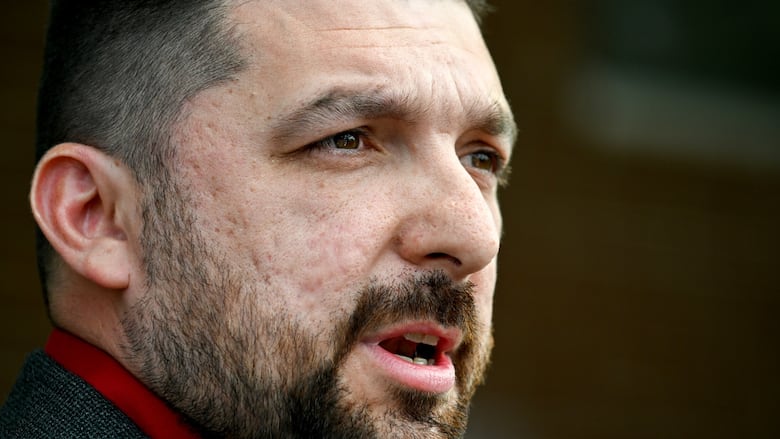Mohawk Council of Kahnawà:ke mulls applying road tolls in response to federal cuts
120,000 vehicles pass through territory daily, grand chief says

The Mohawk Council of Kahnawà:ke said Tuesday that it is looking at imposing tolls on the roads crossing its territory in response to looming federal budget cuts.
Grand Chief Cody Diabo told reporters the tolls could help offset the impact of cuts to federal ministries, including Indigenous Services Canada.
Finance Minister François-Philippe Champagne sent letters earlier this summer to multiple ministers asking them to cut program spending at their ministries by 7.5 per cent next spring, 10 per cent the year after and 15 per cent in 2028-29.
Diabo said cutting the services provided to Indigenous people through Indigenous Services Canada, while transfer payments to the province are left untouched, amounts to "racialized austerity."
"Canada cannot claim a commitment to reconciliation while cutting the very services that support our communities," he told reporters in Kahnawà:ke, south of Montreal. "These cuts will deepen inequities in housing, health care, education, public safety and more, while also undermining Canada's legal obligation under Section 15 of the Charter of Rights and Freedoms."
Section 15 promises every individual's right to equal protection under the law without discrimination.
Diabo said his council is looking at implementing tolls on major highways where he says approximately 120,000 vehicles pass through daily.
He said details of the plan would be announced at a later date, but that the roads being considered include Routes 138 and 132 — both major highways used by people who commute to and from Montreal and its South Shore. He said tolls could be around $4.60, which is the rate charged by nearby Autoroute 30.
He said Kahnawà:ke also includes a seaway and rail line, and did not rule out eventually imposing more tolls.
"Let me be clear: this is not something that is against the Canadian public. This is against the Canadian government itself," he said.
"All we have tried to do is live peacefully and coexist peacefully. But time and time again, the Canadian government has forced us to do different things that we have not wanted to do."
Diabo said the news of the cuts comes in the wake of Indigenous opposition to Bill C-5, which gives Ottawa the power to fast-track projects it considers to be in the national interest.
He said Prime Minister Mark Carney should have mentioned the cuts during meetings over the summer about C-5 with Indigenous leaders.
"They're going to tell you one thing upfront in national forums or whatnot, and then they're going to go behind the scenes and try to systemically break you down," he said of the Carney government's approach, which he equated to that of his Liberal predecessor, Justin Trudeau.
The Mohawk Council of Kahnawà:ke is calling on the Liberal government to reverse the budget cuts.
Diabo said a face-to-face meeting with federal government members would be a good first step in convincing him to reconsider the tolls. However, he wasn't promising to change his mind, saying his community is "pretty resolute in what has to happen."
In most cases, particularly in Quebec, when a highway passes through a First Nations community, the province had previously expropriated reserve lands to create a road, according to Nadir André, a partner at JFK Law.
"However, the province did not do this for Kahnawà:ke, which gives the local Kahnawà:ke government the authority to enforce its own road safety code and enforce the law through its peacekeepers," said André, who specializes in Aboriginal Law.
With files from CBC's Gloria Henriquez
